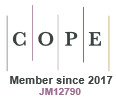Genetic effects of kangaroo harvesting.
PT Hale
Australian Mammalogy
26(1) 75 - 86
Published: 2004
Abstract
There is concern that the commercial harvest of kangaroos (Macropus spp.) is affecting species fitness and evolutionary potential because the harvest selects for larger individuals, particularly males. This paper reviews the likely effect of selective harvesting on specific traits associated with fitness, including size, and on adaptive genotypes through generalised loss of gene diversity. Heritability for traits associated with fitness is low generally. The intensity of selection imposed by harvesting is low for several reasons: the geographic size of genetic populations is much larger than the harvest localities, which are therefore not closed but open with immigration acting to correct any change in allele frequencies through harvesting; the harvest targets kangaroos above a threshold weight that includes all adult males, not the largest males specifically; larger, older males may not confer significant fitness benefits on offspring; fitness traits are inherited through both sexes while males are targeted predominantly; populations are not at a selective equilibrium because food availability fluctuates, and the fittest is unlikely to be the largest. Comparisons of harvested and unharvested populations do not show any loss of gene diversity as a result of harvesting. The likelihood of a long-term genetic impact of kangaroo harvesting as currently practiced is negligible.https://doi.org/10.1071/AM04075
© Australian Mammal Society 2004


